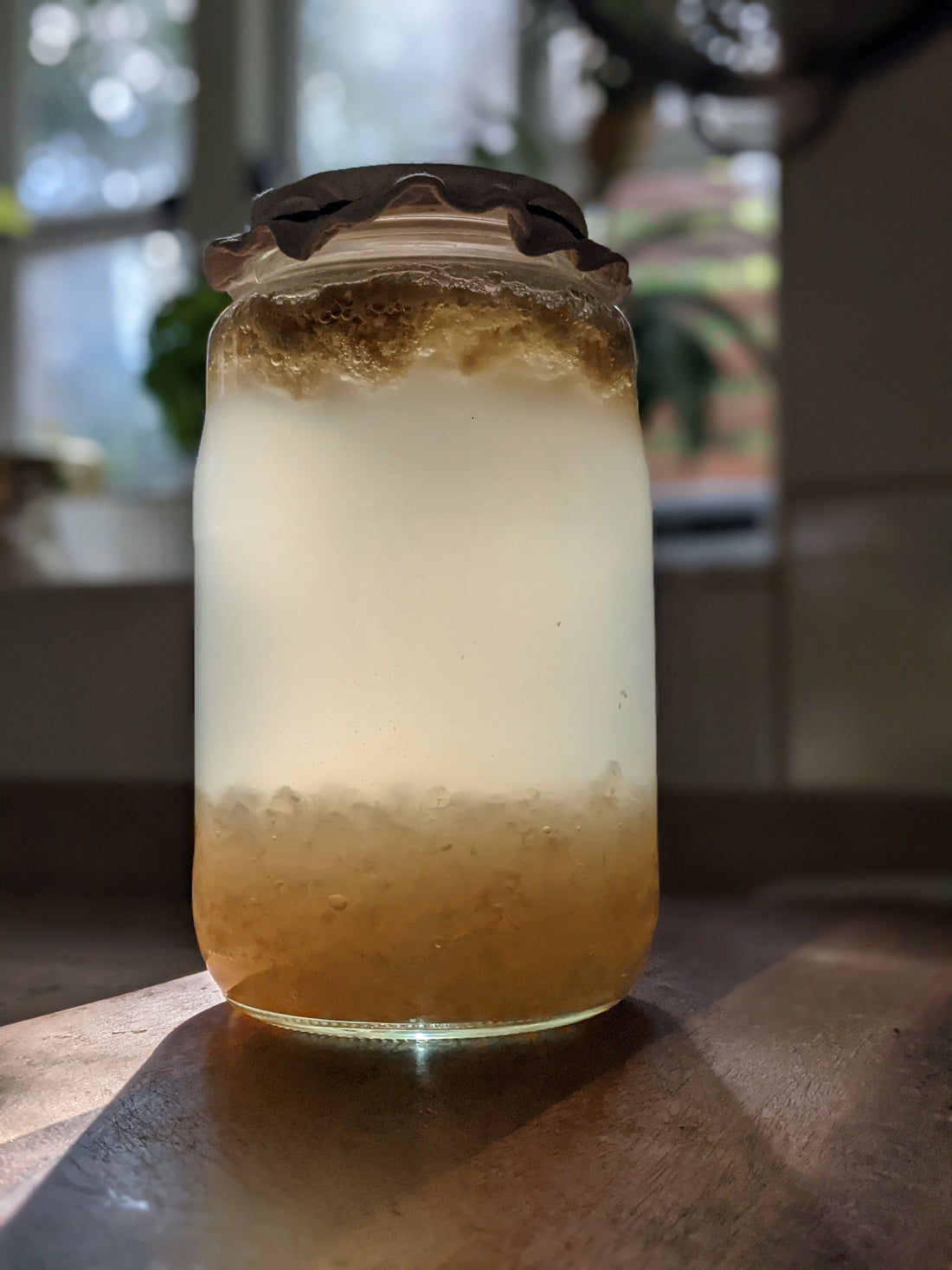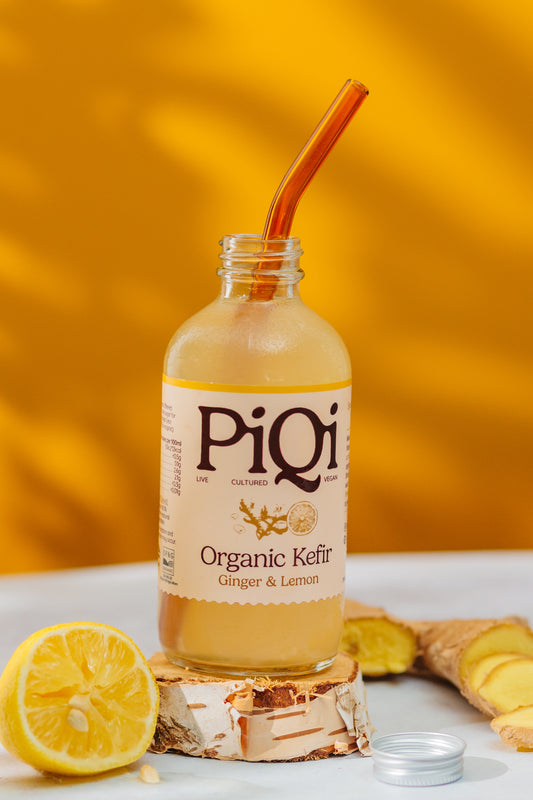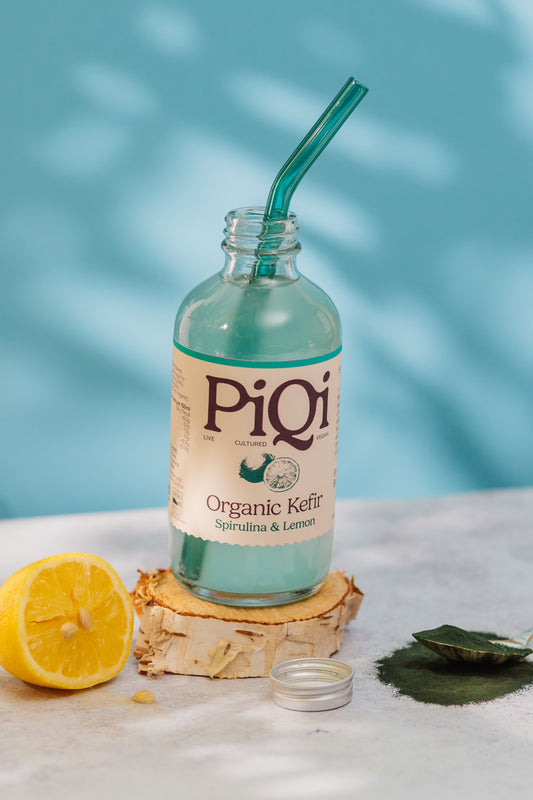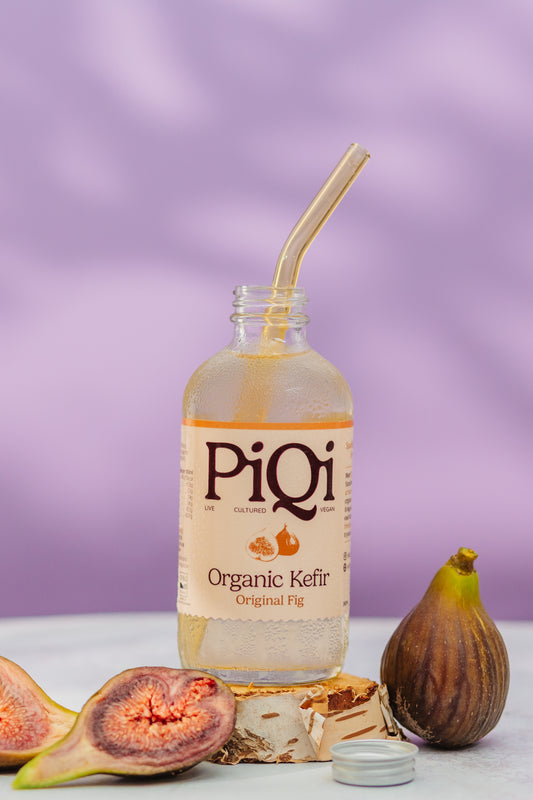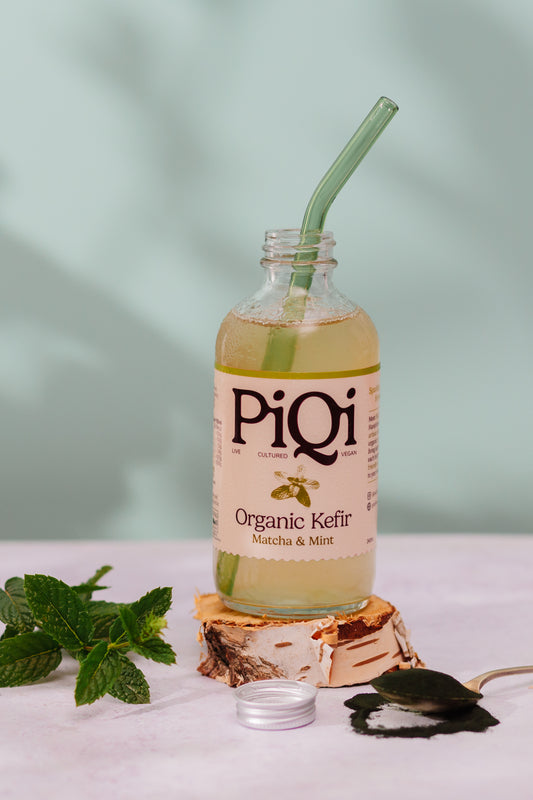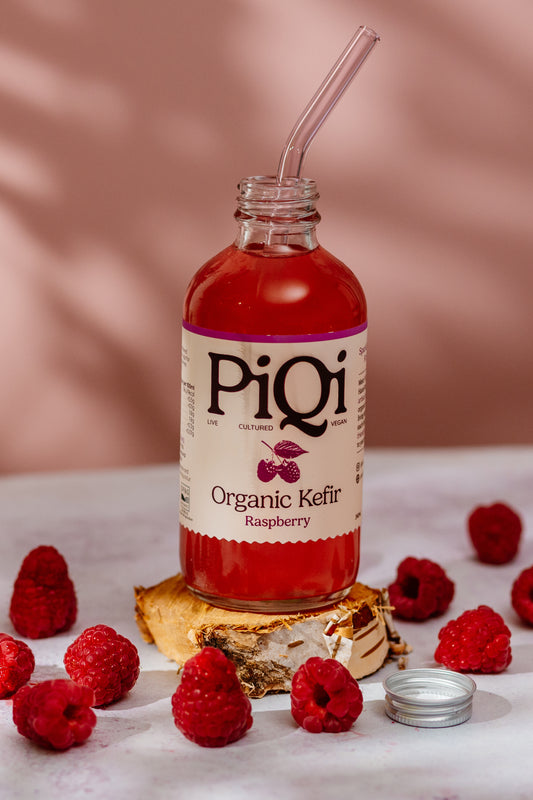Looking to add some fizzy, probiotic goodness to your life? Then you’ve come to the right place! Water kefir with its sweet and tart flavor and gentle fizz, is packed with naturally occurring probiotics and is a great alternative to sodas, sugary drinks, dairy and even alcohol! Plus, it's super easy to make at home in five easy steps 😊
What is water kefir?

Water kefir, also known as tibicos or aqua kefir, is a refreshing, fermented beverage that has been enjoyed for centuries. Unlike traditional milk kefir, which is made from dairy, water kefir is completely dairy-free and made using water kefir grains which is a SCOBY (a symbiotic colony of bacteria and yeast). These grains which originally were isolated from a cactus plant in South America, feed on organic sugars, fruit, and water to create a probiotic-rich drink that is lightly sparkling and delicately flavored. While water kefir on its own has a very subtle taste compared to kombucha for example, it can be enhanced with the addition of fruit, herbs, or juices for added enjoyment.
Benefits of Water Kefir
Water kefir is primarily consumed for its probiotic benefits. It contains high concentrations of beneficial bacteria that can help support gut health and boost the immune system.
Potential benefits of water kefir include:
- Promoting healthy digestion – by helping balance the bacteria in the gut which can aid in digestion and help prevent digestive issues such as bloating and constipation
- Supporting the immune system - it is estimated that up to 80% of the immune system gets regulated through the gut and consuming probiotic-rich foods may help give your immune system a boost
- Reducing inflammation - some research suggests that probiotics may have anti-inflammatory effects, which may help reduce inflammation in the body
- Improving skin health - some people may find that consuming water kefir helps improve the health and appearance of their skin, possibly due to the probiotics' ability to reduce inflammation
How to make water kefir

Making delicious water kefir at home is easy and a great way to boost your immune system. Follow these five simple steps to get started:
The basic recipe requires only three ingredients: kefir grains, water and sugar. Dried fruit such as figs, dates, raising and apricots are sometimes added to provide additional nutrients to the SCOBY (these must be organic and without sulphur or oil, check the ingredients to make sure).
Kefir grains consume the sugars and convert them to lactic acid and carbon dioxide, creating a delicious lightly sparkling beverage while simultaneously making kefir more acidic, which prevents harmful bacteria from forming.
How to make water kefir by PiQi
Basic water kefir recipe:
- ¼ cup kefir grains
- 4 cups non-chlorinated water (more on this later)
- 40g sugar
- 20g dried figs (optional)
Preparation method:
Step 1: Mix sugar with water in a clean glass jar
Step 2: Add kefir grains and dried fruit, cover with a cloth or paper towel and seal with a rubber band
Step 3: Let the mixture ferment at room temperature for 24-48 hours
Step 4: Strain the liquid into a bottle
Step 5: Chill and enjoy
At this stage, water kefir is ready to drink: it should be a little bubbly, tart and lightly sweet. The finished beverage should be stored in the fridge, otherwise it will continue to ferment and you will end up with a vinegar-like, acidic liquid.
Flavouring of water kefir
Many fermentation enthusiasts flavour their kefirs during the second stage of fermentation with fresh fruit, herbs or various juices. For second fermentation you can experiment with fresh strawberries, apples, or a simple ginger and lemon combo, this will make your first ferment really flavourful and delicious!

Instructions: in a bottle or a glass jar mix your strained water kefir and freshly sliced fruit (start with 1/4 cup of fresh fruit per 1L of water kefir). Add a lid on top (flip top bottles work really well here but they don’t need to be tight) and let it sit at room temperature for another 24 hours. Burp your vessel every 8 hours to release excess CO2 to keep your ferments and yourself safe from the dangers of pressurized containers.
Once it’s finished remove the fruit (it'll typically float to the top), adjust ingredients to taste (if too sweet you can let it ferment for longer or add water, if it's too sour you can add water to dilute). Store your finished bottled kefir in the fridge. You can eat the fermented fruit, it’s quite a potent gut-healthy treat by now!
Warning: naturally fermented beverages continue to ferment if you leave them out at room temperature (this is true for all living drinks: kombucha, kefir, ginger bug, etc). So it’s important to remember to burp your jars / bottles during fermentation every 8 hours to release excess gas and prevent bottle explosions, and always store your finished water kefir in the fridge.
2nd ferment is not your only option for making fruity delicious kefir. Check out our mojito mocktail recipes for additional inspiration that you can make with your first ferment.
Tips for making the best water kefir
Because water kefir is a raw, living beverage, it is important to keep a few things in mind.
Kefir grains are sensitive to chlorine and metal, so it is recommended that only non-chlorinated water and non-metal utensils are used during preparation.
The type of sugar that is used for fermentation will impact flavour and fermentation activity. Kefir grains require nutrients to survive, so the sugar should not be overly processed. Equally, dark sugars are very high in nutrients and should be used sparingly. Our recommendation is to use organic cane sugar for best results.
Temperature can also affect the rate of fermentation; you might find that in the summer months your kefir is finished after 24 hours while in wintertime it can take longer - sometimes up to 3 or 4 days.
Kefir grains multiply very quickly and can sometimes double within a week
Kefir grains are sensitive to metal and should not be handled with metal utensils
Water kefir is rich in live probiotic cultures

